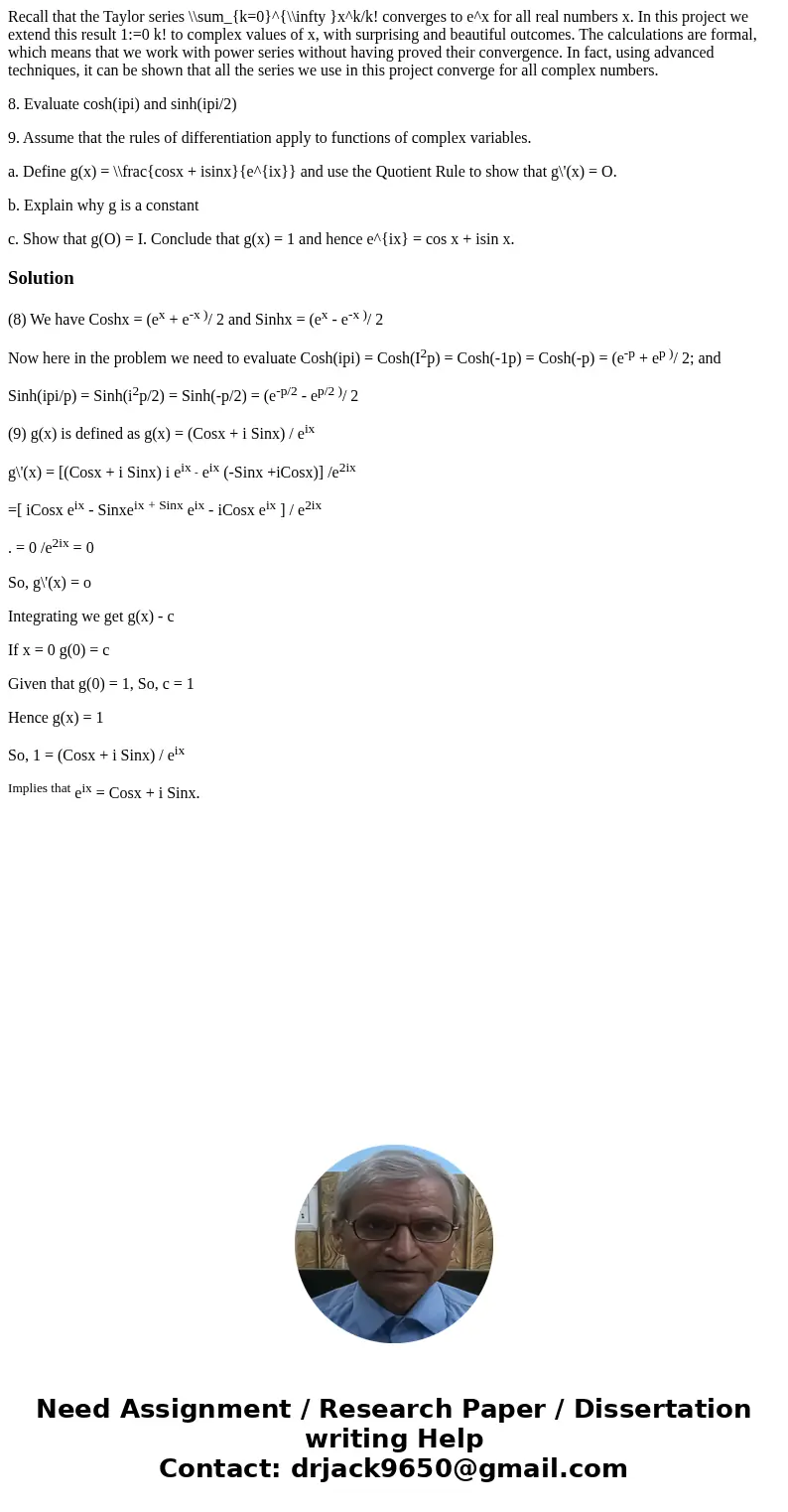Recall that the Taylor series sumk0infty xkk converges to ex
Recall that the Taylor series \\sum_{k=0}^{\\infty }x^k/k! converges to e^x for all real numbers x. In this project we extend this result 1:=0 k! to complex values of x, with surprising and beautiful outcomes. The calculations are formal, which means that we work with power series without having proved their convergence. In fact, using advanced techniques, it can be shown that all the series we use in this project converge for all complex numbers.
8. Evaluate cosh(ipi) and sinh(ipi/2)
9. Assume that the rules of differentiation apply to functions of complex variables.
a. Define g(x) = \\frac{cosx + isinx}{e^{ix}} and use the Quotient Rule to show that g\'(x) = O.
b. Explain why g is a constant
c. Show that g(O) = I. Conclude that g(x) = 1 and hence e^{ix} = cos x + isin x.
Solution
(8) We have Coshx = (ex + e-x )/ 2 and Sinhx = (ex - e-x )/ 2
Now here in the problem we need to evaluate Cosh(ipi) = Cosh(I2p) = Cosh(-1p) = Cosh(-p) = (e-p + ep )/ 2; and
Sinh(ipi/p) = Sinh(i2p/2) = Sinh(-p/2) = (e-p/2 - ep/2 )/ 2
(9) g(x) is defined as g(x) = (Cosx + i Sinx) / eix
g\'(x) = [(Cosx + i Sinx) i eix - eix (-Sinx +iCosx)] /e2ix
=[ iCosx eix - Sinxeix + Sinx eix - iCosx eix ] / e2ix
. = 0 /e2ix = 0
So, g\'(x) = o
Integrating we get g(x) - c
If x = 0 g(0) = c
Given that g(0) = 1, So, c = 1
Hence g(x) = 1
So, 1 = (Cosx + i Sinx) / eix
Implies that eix = Cosx + i Sinx.

 Homework Sourse
Homework Sourse